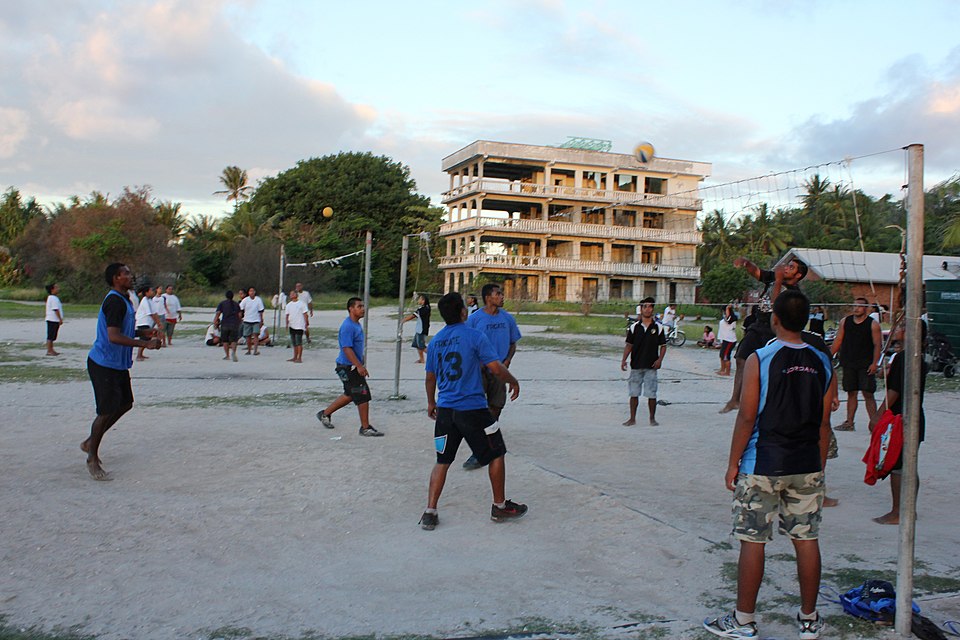How China and Australia are Shaping Poverty Reduction in Nauru
 Nauru is one of the most aid-dependent nations. It continually struggles with access to health care, education, basic necessities and resources, leading to an endless cycle of poverty and limited employment opportunities. To combat these challenges, the country receives aid from other countries, which makes up about 14% of its national income. Australia is Nauru’s primary aid partner, supplying 66% of the island’s development assistance.
Nauru is one of the most aid-dependent nations. It continually struggles with access to health care, education, basic necessities and resources, leading to an endless cycle of poverty and limited employment opportunities. To combat these challenges, the country receives aid from other countries, which makes up about 14% of its national income. Australia is Nauru’s primary aid partner, supplying 66% of the island’s development assistance.
However, in January 2024, Nauru severed its diplomatic ties with Taiwan, allowing China to seize more opportunities to support Nauru’s development. China’s expanded presence in Nauru has added complexity to regional geopolitics. However, despite possible tensions between Australia and China, this engagement has the potential to bring about meaningful change in Nauru.
Poverty in Nauru
Nauru has the worst human development indicators and the shortest life expectancy in the Pacific, with an average life expectancy at birth of 62 years. Furthermore, the under-5 mortality rate as of 2022 was 26.5 deaths per 1,000 births. The island also has the highest rate of food poverty in the region, and around one in four people lives below the poverty line. Nauru imports most of its food, as strip mining destroyed 80% of the island’s interior. These issues have drawn international attention, prompting varied responses from Nauru’s partners. Australia and China have taken very different approaches to poverty reduction in Nauru.
Australia’s Poverty Alleviation Strategy
Australia’s comprehensive development program to Nauru focuses on health, education, economic governance and natural disaster relief. Australia plans to allocate $50 million over the next decade toward the Raña Tsimorum (“Look After your Life”) Program, which will strengthen the health care system in Nauru by increasing efficiency and quality of services outlined in the National Health Strategy. Australia will contribute funding toward the training of healthcare professionals and the improvement of health infrastructure.
Likewise, Australia enacted the Nauruan Education Program. The initiative encourages school enrollment and attendance while supporting systems within Nauru’s Department of Education and Training.
Nauru’s economic development is covered by a $60 million program focused on financial management and economic diversification. Indeed, by promoting long-term budgetary self-reliance, contributing to the Intergenerational Trust Fund, Australia is helping Nauru build greater economic resilience in the face of future uncertainty.
China’s Role in Poverty Reduction in Nauru
China’s approach to poverty reduction in Nauru is based on China’s Global Development Initiative, which builds on the 2030 Agenda for Sustainable Development. The Global Development Initiative prioritizes poverty alleviation, food security, industrialization, development financing, the digital economy, connectivity and green development. China’s primary focus in Nauru is on large-scale infrastructure projects, consistent with its broader development approach seen in other countries where China has a presence.
In 2019, China Harbor Engineering Company began constructing a new port in Nauru’s largest harbor. This project expanded Nauru’s access to international markets and created job opportunities for locals to learn new skills, which enabled them to earn higher wages than in other local jobs.
China has also prioritized improvements in the energy sector. This has been achieved by constructing a new solar power plant, a battery energy storage system and an 11 kilovolt substation. More recently, China facilitated the transfer of ownership of a container vessel, which will enable the transport of goods from Australia directly to Nauru. Additionally, the ship will lower the cost of imported goods and reduce wait times, making life easier and more affordable for Nauruans.
China also sent medical experts to perform cataract surgeries in Nauru as part of its Brightness Action program, which seeks to deliver eye surgeries and surgical equipment to developing nations. Beyond deploying experts to meet local needs in Nauru, China offers Nauruan students the opportunity to study in China and receive various types of job training.
Poverty Reduction in Nauru
Australia and China both play a crucial role in poverty reduction in Nauru, despite taking different approaches. Australia’s focus on sustainable development, through health, education and economic initiatives, aims to create long-term resilience. Meanwhile, China’s large-scale infrastructure projects and targeted aid offer immediate improvements and opportunities. Together, Australia and China have a unique chance to meaningfully reduce poverty in Nauru by collaborating and aligning their development efforts with the island’s priorities and needs.
– Haley Parilla
Haley is based in Cape Coral, FL, USA and focuses on Business and Politics for The Borgen Project.
Photo: Wikimedia Commons
